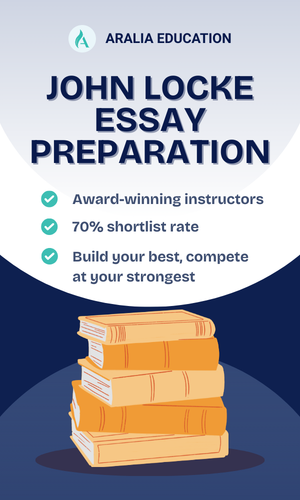Boost Your Public Speaking Confidence Today
After exploring these topics, don’t leave just yet. At the end of this article, we will share more tips on how to turn your speech into something people will talk about for a while. With that, here’s a curated list of 25 persuasive speech topics for high school students!
Persuasive Speech Topics by Theme
1. School and Education
- Should schools start later in the morning to accommodate teen sleep patterns? You could argue that later start times would help you feel more rested, focused, and ready for a full day of learning.
- Should homework be reduced or eliminated? This topic lets you explore whether homework actually improves learning or just adds stress to your day.
- Is online learning as effective as in-person classes? You can compare the flexibility of online classes with the more social and hands-on benefits of being in a physical classroom.
- Should students have a say in creating school rules? You might argue that having a voice in rules makes them feel fairer and encourages more respect for them.
- Should schools require uniforms? This debate asks you to consider whether uniforms promote equality or take away your freedom of self-expression.
2. Technology and Social Media
- Should social media platforms regulate misinformation more strictly? You can dive into how fake news affects people’s choices and whether stricter rules would help.
- Are smartphones use harmful to teenagers? This lets you weigh the downsides of screen time against the positive ways phones keep you connected with other people.
- Should students be allowed unlimited access to digital devices? You could argue whether constant access boosts learning or just causes more distractions.
- Does playing video games have educational value? You might show how games can improve problem-solving, teamwork, and even critical thinking.
- Should schools ban social media during school hours? This question challenges you to think about whether bans improve focus or just push students to find workarounds.
3. Environment and Sustainability
- Should single-use plastics be banned? You can highlight how small choices, like cutting down on plastics, can make a big difference for the planet.
- Should governments invest more in renewable energy? This lets you explore whether the long-term benefits outweigh the financial costs of going green.
- Should meat consumption be reduced to protect the environment? You could examine the tension between personal preferences and global responsibility.
- Are electric cars the solution to global warming? This gives you the chance to argue whether electric cars truly solve the problem once you factor in its production and energy use.
- Should schools implement more green initiatives? You can show how simple actions like recycling or conserving energy at school can create meaningful change.
4. Social Issues
- Should voting age be lowered to 16? You might argue that teens deserve a say in politics since decisions today will shape their future.
- Is community service an essential requirement for graduation? You can explore whether mandatory community service builds responsibility or just adds extra pressure without contributing meaningful engagement.
- Should bullying be punished more severely in schools? You could argue whether harsher punishments stop bullying or if schools need stronger prevention programs against bullying.
- Should students have the right to protest at school? This lets you debate whether free speech should extend fully into the school environment.
- Should schools provide more support for LGBTQ+ students? You can explain how stronger support systems for LGBTQ+ students creates safer, more inclusive spaces for everyone.
5. Health and Lifestyle
- Should junk food be banned in schools? You might argue whether schools should protect your health or give you the freedom to choose what to eat.
- Is physical education as important as academic subjects? You can show how PE supports your physical and mental health just as academics support your future.
- Should schools encourage mindfulness and meditation? This topic lets you explore how simple practices for better mental hygiene could help you manage stress and stay focused.
- Are energy drinks harmful to teenagers? You could argue whether the long-term health risks outweigh the short bursts of energy they give you.
- Should students learn about healthy relationships in school? You can explain how learning these social skills prepares you for building stronger connections and improving well-being.
The Key to an Effective Persuasive Speech
The most important goal of giving a persuasive speech is to convince people of a viewpoint or inspire them to take action. To do so, pick a topic that actually excites you, so that you can relate to your audience through your own experience. If you don’t care enough when talking about it, they won’t care enough to listen. From there, back up your ideas and opinions with credible evidence. Think about what people might say against your argument. Addressing those counterpoints in advance shows you’ve thought all angles through and improves your speech quite a bit. Organize those ideas with a clear flow, starting with an introduction that grabs attention, a body that builds your points, and a conclusion that ties everything together. After you have everything in place, it is time to deliver your speech. The deciding factor between an eye-glue or a yawner includes tone, pacing, and body language.
Enroll in Aralia’s Comprehensive Public Speaking Courses
Now, let’s explore each topic.
1. Know Your Audience
It’s crucial that you understand who you are speaking to. Your audience is made up of people of different ages, interests, and experiences. Tailoring examples, stories, and even your language to your specific audience will keep them engaged and listening.
Resource:
TED-Ed: How to Speak So That People Want to Listen – A video that explains audience engagement and effective communication techniques.
2. Research Thoroughly
Credible evidence is what makes your argument convincing. Your sources are supposed to be trustworthy, like academic articles, reputable news, or expert interviews. Organize your research such that each point has clear support and can strengthen your overall speech.
Resource:
Purdue Online Writing Lab: Evaluating Sources – Guides students on how to assess source credibility.
Khan Academy: Research Skills for Students – Offers practical tips on gathering and using evidence effectively.
3. Tell Stories
Stories are remembered far better than abstract facts. Real-life examples, personal experiences, or anecdotes are the tools you can use to make your speech relatable, add emotional impact, and keep people invested in what you have to say.
Resource:
TED Talk: The Secret Structure of Great Talks by Nancy Duarte – Discusses storytelling structure in persuasive communication.
4. Structure Clearly
Your speech is most effective when it has a clear introduction, body, and conclusion. Start with a hook, present your points logically, and finish with a strong conclusion; having this structure makes your argument easier to follow and reinforces your reliability.
Tip: Consider using the “Problem-Solution-Benefit” structure to make complex topics easier to understand.
5. Practice Delivery
Delivery is just as important as the content itself. You should practice speaking aloud, focus on your tone and pacing, use gestures and facial expressions naturally, and maintain eye contact so your audience feels connected to you, not just your speaking notes.
Resource: Toastmasters International: Tips for Effective Speaking – Offers practical advice for confident delivery.
6. Anticipate Counterarguments
You are supposed to show that you’ve considered other viewpoints. Address counterarguments respectfully and support your responses with evidence; doing this demonstrates that your thinking is thorough and makes your position even more persuasive.
Tip: Practice responding to potential objections with facts or analogies to stay composed during questions or debates.
Last Remarks
Practicing a great persuasive speech goes far beyond the classroom, even though it might feel intimidating at first. Just know that you’re not alone! Every person you see on stage delivering an amazing and mesmerizing speech also began with clumsy sentences. By knowing your audience and coming to the podium prepared, you have already won half the battle.
At Aralia Education, we train students to be great public speakers and thought leaders. Our network of seasoned tutors and mentors has been working tirelessly to help students like you achieve your goals, whether it’s tough school subjects, college essays, advanced exams, or competitions. Chat with us now to get started!

Intro to Public Speaking
The class is designed to help prepare international middle school students to grow in confidence and excel in oral presentations to their fellow students and administrative/entrance school staff. Additionally, students will be introduced to the major types of speech presentations they are likely to be assigned while completing a public speaking and/or introductory communication course during their middle and high school careers.

TED-Style Public Speaking
In this course, students will research, write and deliver their own TED Talk speeches. Students will be able to participate in speech competitions at the high school or university level. Students will build a solid foundation in oral expression and learn how to express themselves confidently and clearly in English.








